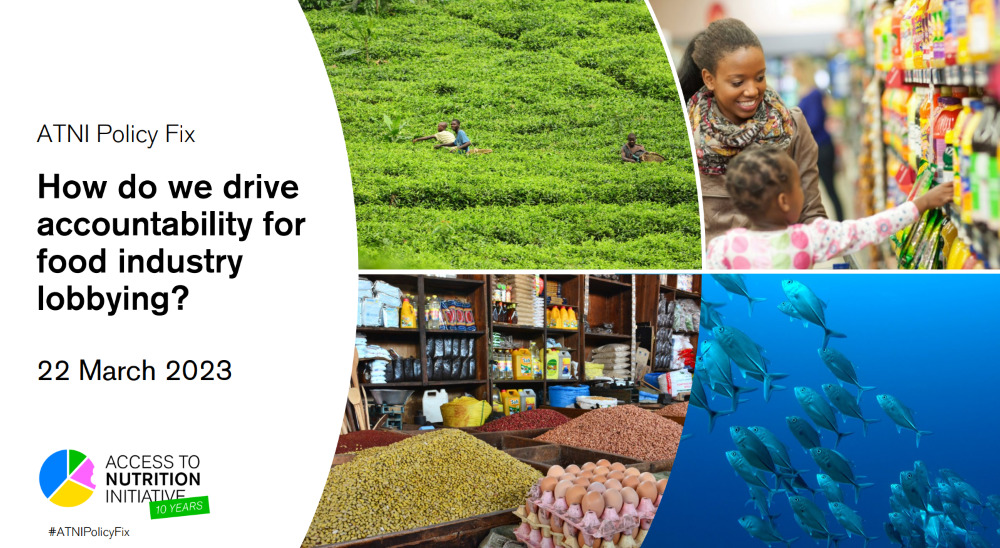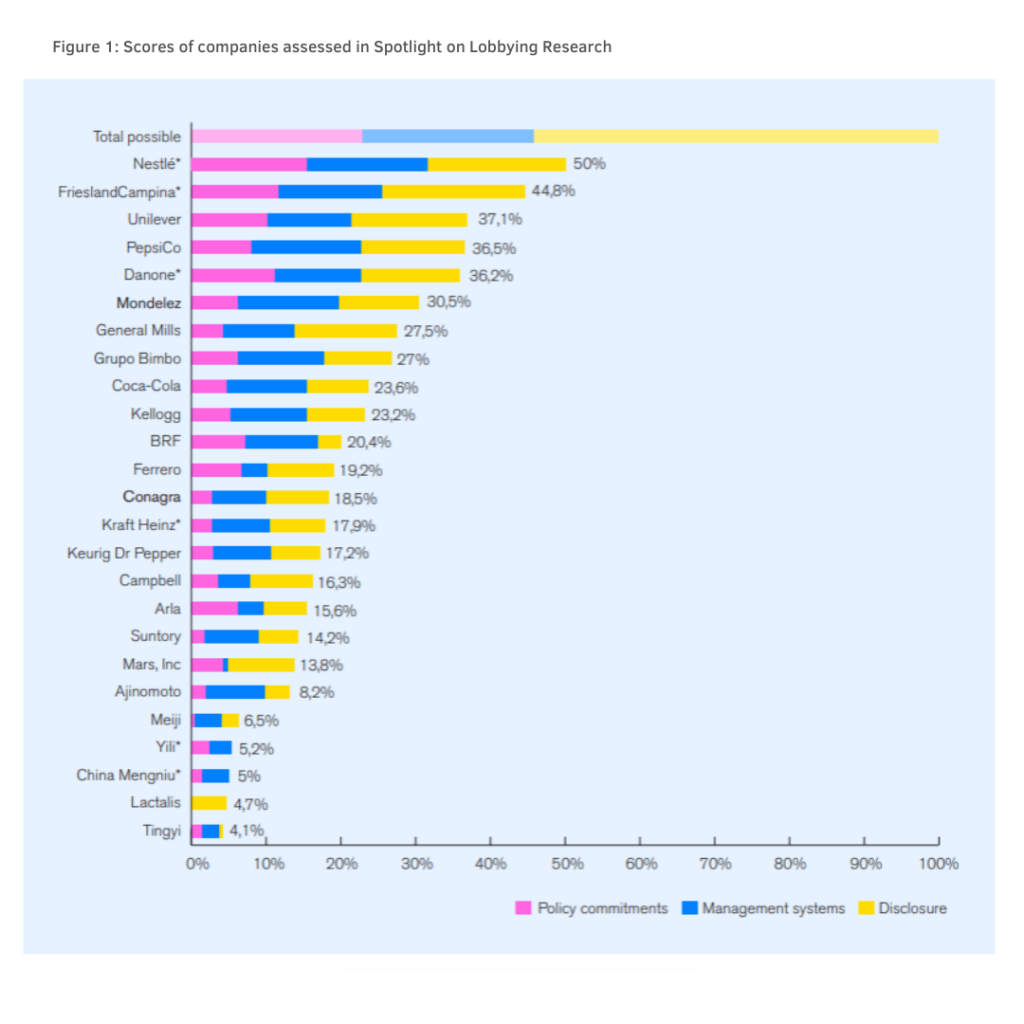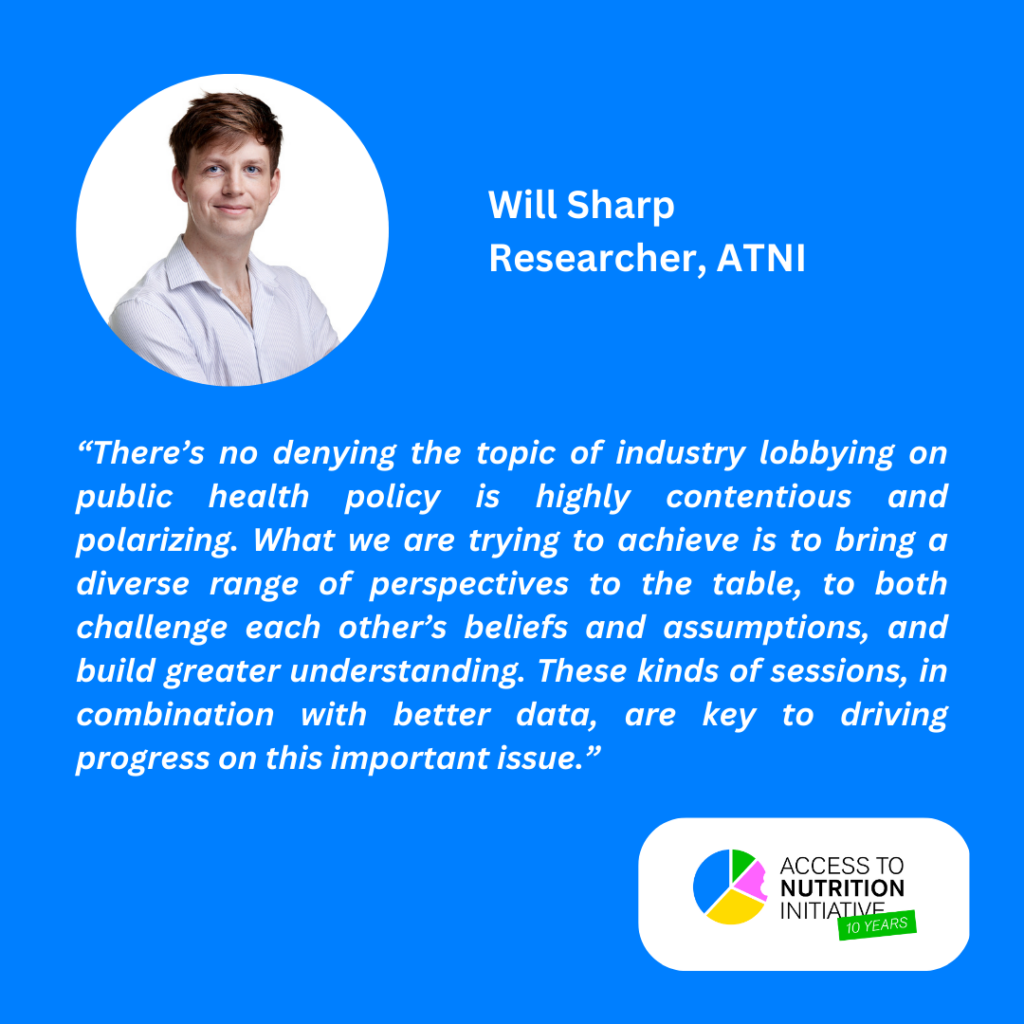
ATNi Launches Policy Fix Webinar Series
30 March 2023On March 22, ATNi launched its Policy Fix Webinar Series. Our first event, which saw nearly 200 people attend, focused on ways in which industry actors can be held accountable for their efforts to influence public health policy around the world. It also examined key concepts such as ‘responsible lobbying’, and whether food and beverage industry lobbying can have a net positive impact on public health.

The event kicked off with an introduction from ATNi’s Executive Director, Greg S Garrett, on the need for better monitoring of food industry lobbying, followed by Will Sharp, ATNi’s lead author of the recently published Spotlight on Lobbying, who presented the key findings and assumptions of the report. Rachel Crossley, Head of Stewardship Europe, Sustainability Centre at BNP Paribas Asset Management, gave the audience insights into how responsible investors see lobbying as a key ESG risk, sharing learnings on climate change-related lobbying, and how investors helped to change the direction of many companies’ lobbying on this topic.
ATNi Spotlight on Lobbying Report

-----------------------------------------------------------------
ATNi convened a panel of leading commentators from across the divide. In addition to Rachel Crossley and Will Sharp, the panel comprised:
- Rocco Renaldi, Secretary General of the International Food and Beverage Alliance (IFBA), representing the views of the private sector;
- Lucy Martinez Sullivan, Senior Vice President for the Global Health Advocacy Incubator (GHAI), representing the perspective of public health advocates;
- Alberto Alemanno, Founder of The Good Lobby and Professor in EU Law at HEC Paris, sharing his unique perspective on ‘responsible lobbying’ and voluntary lobbying frameworks and standards.
- Teresa Welsh, a Senior Reporter at Devex, who expertly moderated the discussion.
-----------------------------------------------------------------
The discussion ranged from whether and how the food and beverage industry, whose primary role is to maximize profit, can lobby ‘responsibly’, whether the positive role they can play is outweighed by the well-documented efforts to undermine important policies, the value and challenges involved in voluntary transparency, to the importance (and challenge) of looking beyond more traditional forms of lobbying to more indirect corporate political activities. Our audience, which spanned the public and private sectors and civil society, represented a range of opinions and took an active part in the discussion, putting stimulating questions to the panelists and ATNi.
Watch the recording of the event here
-----------------------------------------------------------------

-----------------------------------------------------------------
ATNi learned a great deal from the event, including:
- Critical question – There remains a critical question on whether food industry has/can have a net benefit on public health through its lobbying. Ongoing issues that affect this include lobbying for profit maximization and lobbying against policies which are for the public good.
- Solutions – To answer this critical question, we need mechanisms to: 1) track and monitor food industry lobbying; 2) build transparency; and 3) facilitate constructive engagement and mitigate polarization.
- Market dynamics also need to change – long-term return on investment towards healthy foods and diets must be prioritized over short-term gains. Investors/shareholders, insurance companies, policymakers, and the companies themselves are critical changemakers.
-----------------------------------------------------------------
ATNi believes that we can help shape intent and markets towards healthier foods through collective action on agreed pledges and targets, better tracking and monitoring, ESG investing, and supporting government policy to better regulate.
-----------------------------------------------------------------
ATNi aims to develop our lobbying monitoring practice. And we want to be part of navigating the challenging issue of keeping the private sector on the straight and narrow path of working in the public interest.

